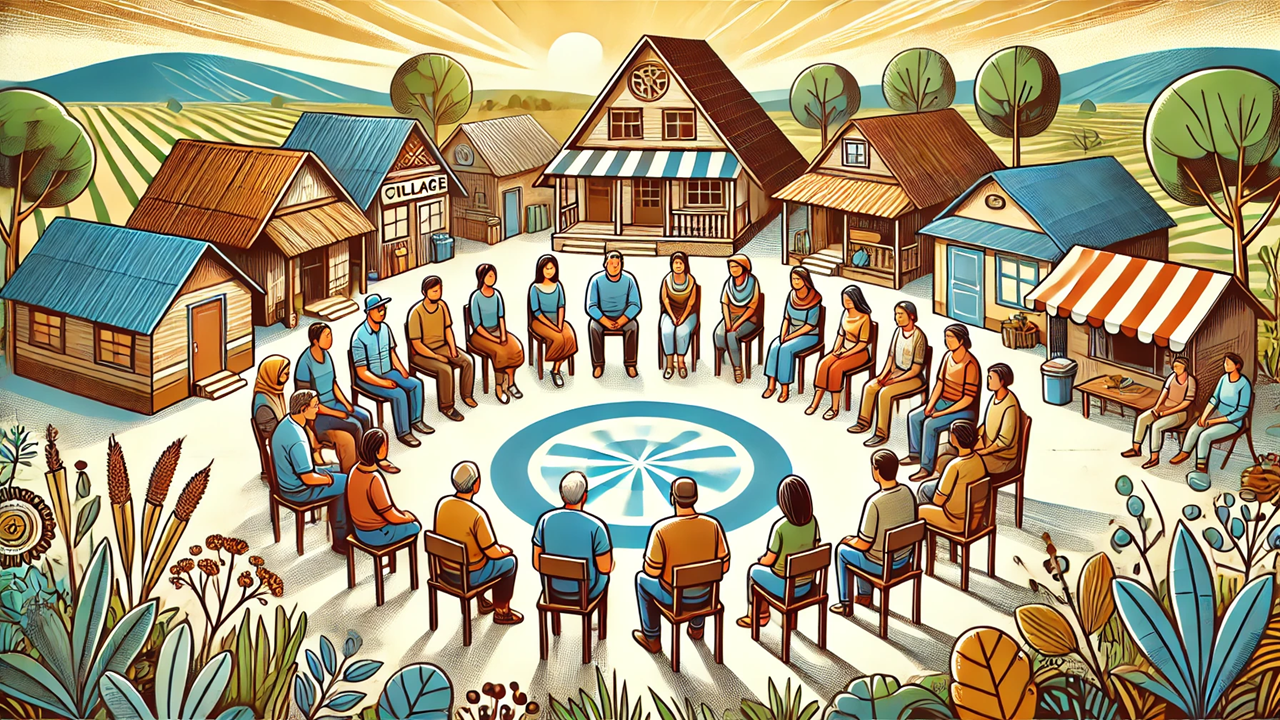Building a Better World: How SDG 16 is Leading the Charge for Peace, Justice, and Strong Institutions
A new report titled "Making Progress on SDG 16: Unlocking the Power of Example" by the United Nations Development Programme (UNDP) provides a comprehensive analysis of global efforts to achieve Sustainable Development Goal 16 (SDG 16), which focuses on promoting peace, justice, and strong institutions. Through various case studies and examples, the report highlights the importance of good governance, rule of law, transparency, accountability, and inclusive institutions as critical components for sustainable development.

In an era where global challenges seem more interconnected than ever, the pursuit of peace, justice, and strong institutions stands as a cornerstone of sustainable development. A recent report by the United Nations Development Programme (UNDP) titled "Making Progress on SDG 16: Unlocking the Power of Example" sheds light on the multifaceted efforts across the world aimed at achieving Sustainable Development Goal 16 (SDG 16). This goal, established by the United Nations, focuses on promoting peaceful and inclusive societies, providing access to justice for all, and building effective, accountable, and inclusive institutions at all levels.
Promoting Peaceful Societies
One of the critical aspects of SDG 16 is the reduction of violence and conflict. The report showcases various initiatives that have been successful in fostering peaceful societies. For instance, community engagement and conflict resolution programs in regions affected by violence have demonstrated remarkable results. In one notable case, a disarmament program in a war-torn country facilitated the safe collection and destruction of weapons, significantly reducing the incidence of armed conflict.
Efforts like these underscore the importance of local involvement and ownership. By engaging communities directly, these programs help to address the root causes of violence and build lasting peace. The success stories highlighted in the report serve as powerful examples of how grassroots initiatives can drive significant change.
Ensuring Access to Justice
Access to justice is another vital component of SDG 16. The report emphasizes that a fair and efficient legal system is fundamental to protecting human rights and ensuring that everyone can seek redress for grievances. Across the globe, various initiatives are working to improve legal frameworks and make justice more accessible.
One example from the report describes a project aimed at providing legal aid to marginalized communities. By offering free legal services and education about legal rights, this initiative has empowered individuals to seek justice and hold authorities accountable. The report also highlights reforms in judicial systems that have streamlined processes and reduced corruption, making the pursuit of justice more transparent and equitable.
Building Strong Institutions
Strong institutions are the backbone of sustainable development. The report highlights numerous examples of how countries are working to build resilient and accountable institutions capable of delivering essential public services effectively. These institutions foster trust in governance and play a crucial role in maintaining social stability.
For instance, the report details a case where a country implemented robust anti-corruption measures, resulting in increased transparency and improved public service delivery. By adopting technology and creating independent oversight bodies, the government was able to significantly reduce corruption and enhance public trust. These examples illustrate that with the right policies and mechanisms, institutions can evolve to meet the needs of their populations and support sustainable development.
The Role of Partnerships and Collaborations
Achieving the ambitious targets of SDG 16 requires a collaborative approach. The report underscores the importance of partnerships and multi-stakeholder collaborations in driving progress. By leveraging resources and expertise from various sectors, these partnerships can amplify the impact of individual initiatives.
One notable example from the report involves a collaboration between government agencies, non-governmental organizations, and the private sector to improve public safety. This partnership led to the development of community policing programs that have successfully reduced crime rates and enhanced trust between law enforcement and the community. Such collaborations highlight the potential for collective action to overcome complex challenges and create sustainable solutions.
Call to Action
"Making Progress on SDG 16: Unlocking the Power of Example" serves as a call to action for continued commitment and collaboration at all levels. The report makes it clear that while significant progress has been made, there is still much work to be done to achieve the goal of peaceful, just, and inclusive societies by 2030.
The success stories and examples presented in the report provide valuable lessons and inspiration for policymakers, practitioners, and advocates worldwide. They demonstrate that with determination, innovation, and cooperation, it is possible to overcome challenges and make meaningful strides towards a more just and equitable world.
As we move forward, the principles of good governance, rule of law, transparency, and accountability must remain at the forefront of our efforts. By building on the progress made and learning from the examples set by successful initiatives, we can unlock the power of the example and accelerate our journey towards achieving SDG 16.
In conclusion, the report "Making Progress on SDG 16: Unlocking the Power of Example" by the United Nations Development Programme (UNDP) offers a compelling narrative of how peace, justice, and strong institutions are being fostered worldwide. It highlights the critical role of good governance and the necessity of inclusive and accountable institutions. By embracing the lessons and examples provided, we can work together to create a future where peace and justice prevail, and institutions are robust and reliable.
- FIRST PUBLISHED IN:
- Devdiscourse
ALSO READ
Abu Dhabi Forum for Peace Joins G20 Interfaith Forum in Brazil
Prime Minister Modi's Historic Visit to Ukraine and Poland: Vision for Global Peace and Cooperation
Union Minister Goyal Condemns Assault, Urges Swift Justice in Badlapur Sexual Assault Case
Kolkata rape-murder: When we say peaceful protestors will not be disturbed, we also mean proper protocol will be followed, says SC.
Modi Advocates Peaceful Solutions Amid Ukraine Crisis










